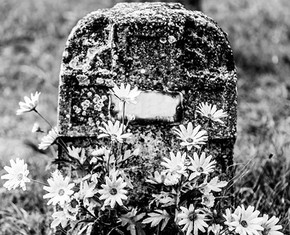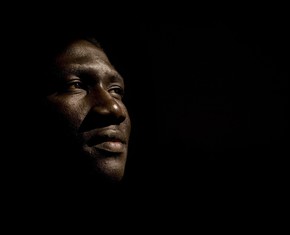The views expressed in our content reflect individual perspectives and do not represent the authoritative views of the Baha'i Faith.
I generally try to resist the practice of data mining, whereby companies track my viewing and purchases, generally for their own advantage.
Yet, I do admit that I don’t mind so much when sites such as Amazon or Goodreads recommend books and films based on other titles they have noticed my looking at or buying. Though sometimes the recommendations are off-target, most of the time I find myself following a trail of links and exploring books and films that tempt me to buy or at least become acquainted with them.
Earlier this week, a retail website pointed me to a book by Donald Finkel called Teaching with Your Mouth Shut. I have neither bought nor read it yet, so I am not trying to recommend it to anyone else. But I am intrigued by what the title suggests, as I believe it perfectly describes one of the best ways we can teach and learn values—with our deeds and not our words:
Guidance hath ever been given by words, and now it is given by deeds. Every one must show forth deeds that are pure and holy, for words are the property of all alike … Strive then with heart and soul to distinguish yourselves by your deeds. – Baha’u’llah, The Hidden Words, p. 48.
First of all, being silent does not mean being uncommunicative. To the contrary, we have probably all been entertained by a mime or have admired a skilled tradesperson silently working. I remember being at an airport where my husband John and I were mesmerized watching a young man wash windows. Balletic in his movements, unaware that he was being watched, he worked so nobly, with no apparent motivation other than the desire for excellence. From watching him I learned about high standards in workmanship.
We’ve all had the reverse experience, wherein an individual’s or a business’ words far exceeded their deeds. I can think of several instances when someone promised one thing and then delivered another, lesser product or service — home renovations, product features, longevity of wear, etc. Alas, the lessons from these sorts of experiences frequently result in distrust, cynicism, and resentment.
The same thing holds true for human relationships. Positive experiences teach us trust and affection, and negative experiences teach us distrust and disaffection. Though this negativity might be reconciled through forgiveness and communications, the bitter lesson may linger.
In the same way, children learn from their parents and notice inconsistencies between words and deeds. One of the areas this especially shows up is in relationship to other people. For example, parents can tell their children to be polite, and then the children observe their parents being rude or impatient.
There are many in-between, untested relationships, ones where people think they will behave one way and then end up behaving another way. It’s not so much that the people were being deceitful; rather they just didn’t know themselves.
To give a concrete example, I read about a mayor who proudly proclaimed in an interview that his town was free of prejudice and ethnic strife. On closer inspection though, the interviewer discovered that the town had an unusually homogenous population. Never having been tested, can the townspeople claim to be free of prejudice? Well, as the story unfolded, eventually some people considered “different” moved in, and this caused considerable unease. I don’t know how it all worked out years later, but at least that much of the story shows how deeds can betray words.
Baha’u’llah warned us: “Beware . . . lest ye walk in the ways of them whose words differ from their deeds.” – Gleanings from the Writings of Baha’u’llah, p. 305.
Abdu’l-Baha said: “Do not be content with showing friendship in words alone, let your heart burn with loving-kindness for all who may cross your path.” – Paris Talks, p. 16.
If we value diversity, if we sincerely believe in the nobility of all people, if we recognize the potential within everyone: Do our actions support those lofty principles? Much like product claims in a brochure, beyond words in a speech and other such promises—no matter how lofty they may sound—ultimately action makes the difference.
















Comments
Sign in or create an account
Continue with Googleor